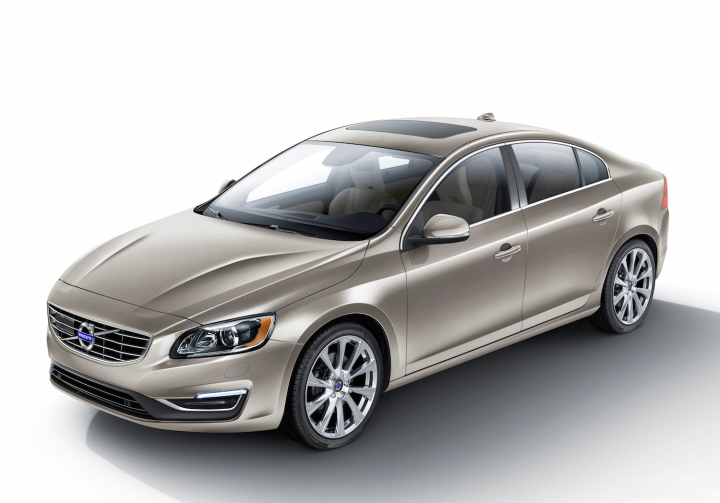
Volvo’s trip to Detroit this year was marked by two new versions of the S60. The S60 Cross Country and the S60 Inscription. Compared to Volvo’s take on the AMC Eagle, the S60 Inscription may not be that entertaining, but this lengthened version of Volvo’s luxury sedan is probably far more useful.
Beneath the fancy name the Inscription is essentially just the S60L, which has already been on sale in Europe and China for some time. The big selling point of this stretched wheelbase S60 is an additional 3.4 inches of rear leg room.
Not only does this added space move the S60 Inscription comfortably into the segment lead for rear seat legroom it is also a much needed improvement. The S60 is in many respects a great car, but rear passengers over about five feet ten inches will have a tough time noticing anything but knee pain.
Now tall passengers will be able to relax and notice some fine Scandinavian detailing like walnut trim, silk metal, and 19-inch wheels unique to the Inscription edition.

Perhaps the most significant thing about the S60 Inscription may not be anything about the car itself, but instead its origins. Volvo has confirmed reports from this summer, that the long wheelbase S60 Inscriptions sold in the United States will be manufactured in China.
Volvo was purchased from Ford by Chinese company Geely in 2010, since that time Volvo has opened a number of manufacturing plants in China. One of the cars made there is the S60L; long wheelbase sedans being extremely popular in China.
This makes the Volvo S60 Inscription the first Chinese built car to be sold in the United States. A significant milestone in the automotive industry. The challenge for Volvo is overcoming long held prejudices about the quality of Chinese made products. This will be doubly difficult because Volvo is not selling a bargain form of transportation but a luxury sedan. Still, consumers have gotten more than used to buying iPhones made in China, so perhaps cars will be no different.
No doubt other automakers, not least domestic Chinese automakers, will watch this story closely to see how American consumers react.
Regardless of the Chinese connection the S60 Inscription should fill an important niche for Volvo, as well as offering its tall Nordic customers to stretch their legs in the backseat.


